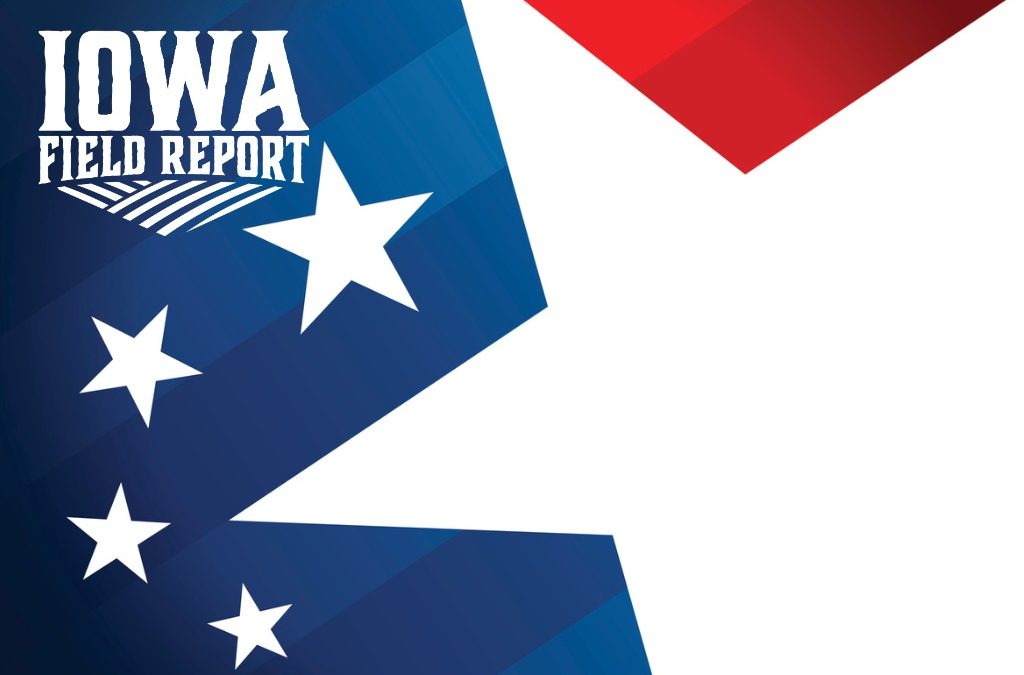Governor Kim Reynolds is growing Iowa’s economy by making the tax code more competitive and ensuring that hardworking taxpayers get to keep more of their money. During her Condition of the State address, the Governor stated that not only do we “need to continue the conversation about cutting taxes,” but she also called for the repeal “of the unnecessary triggers that were put in place in 2018.”
As legislators worked to draw this legislative session to a close, they have passed a comprehensive tax relief package on a bipartisan basis that is estimated to provide $1 billion in tax savings for Iowans. This tax relief package is a victory for the taxpayer, but tax reform is far from complete.
A major reason why tax relief was enacted was the prudent budgeting that Governor Reynolds and the Republican-led legislature have followed. As a result of fiscal conservatism of keeping spending levels low and reducing tax rates, Iowa’s fiscal house was in order as the nation was hit with the COVID-19 triggered recession.
As the legislative session began, Iowa’s budget had a surplus and reserves were full. This provided the groundwork for not only an economic recovery but paved the way for tax relief to occur.
Senate Republicans, at the outset of the session, pushed for tax relief that would eliminate the 2018 revenue triggers and end the obsolete inheritance tax. Senate Republicans, in an effort to lower property taxes, also proposed eliminating the county mental health property tax levy and phasing out the backfill. The backfill resulted from a previous property tax reform law that provided aid to city and county governments to make up for lost commercial property tax revenue.
The comprehensive tax relief measure achieved the tax relief goals that were outlined at the beginning of the session. Some of the major provisions include:
- Eliminates the 2018 revenue triggers: The 2018 tax reform law designed two stringent revenue triggers for income tax rates to be reduced in 2023. The first, state revenues were to surpass $8.3 billion, and the second required revenue growth of at least four percent during that fiscal year. Eliminating both triggers removes an unnecessary impediment to rate reduction.
- Eliminates the death tax: Iowa is one of six states that still have an inheritance tax. It will now be phased-out over a five-year period.
- County mental health levy: This property tax levy will be phased-out over two years and the general fund will assume funding of mental health.
- Phase-out of the backfill: The property tax backfill will be phased-out over a four- and seven-year period depending on the city and county, which will provide them time to prepare for the elimination of the backfill.
- Paycheck Protection Program (PPP): Grants received from the federal COVID-19 program will be exempt from state taxation.
- Bonus depreciation: Iowa’s tax code will now be coupled with the federal tax code regarding the purchases of equipment and other capital assets.
The measure includes numerous other provisions, including several tax credits. The expansion of tax credits in Iowa is a growing concern because it creates complexity in the tax code and makes future tax reform more difficult. Policymakers need to apply greater oversight over tax credits and eliminate those that are ineffective.
Although revenues in Iowa are growing and it appears that both revenue triggers would be met, eliminating the revenue triggers will provide greater certainty for taxpayers. In 2023, the top rate will fall to 6.5 percent and the individual income tax brackets will be condensed from nine to four brackets with a bottom rate of 4.4 percent. In addition to the rate reduction in 2023, federal deductibility will be eliminated.
“Reducing the top income tax rate to 6.5 percent means Iowa families will keep more of the money they earn. Lower income tax rates make this state more attractive to small business and people looking for a new home,” said Senate Majority Leader Jack Whitver. Further, Senator Whitver argued that “phasing out the inheritance tax ends the unjust practice of taxing the dead and the elimination of the mental health levy “finally provides actual property tax relief for Iowans.”
Although this tax relief measure is a victory for the taxpayer, Iowa cannot afford to become complacent. Iowa’s individual and corporate income tax rates are still high and further property tax reform is needed. Recently the American Legislative Exchange Council (ALEC) released the 14th annual Rich States, Poor States: The ALEC-Laffer State Economic Competitiveness Index, and Iowa’s ranking for economic outlook fell from 27 in 2020 to 33 in 2021. One reason for Iowa’s decline in the rankings is that other states are working to reduce their tax rates. Iowa cannot afford to become complacent as it is competing with 49 others states for both jobs and people. The recent census data demonstrates states that have no income tax or states that have lower income tax rates are gaining population.
Future tax reform must be contingent on following a path of fiscal conservatism by keeping spending levels low. Iowa has demonstrated that tax rates can be reduced while also providing for the priorities of government. Other states, such as North Carolina, Indiana, and Utah, have also proved that limited government policies work.
Governor Reynolds and the Republican-led legislature continue to fight for taxpayers in Iowa. If policymakers continue to follow a path of fiscal conservatism, Iowa could become a pro-growth leader in the Midwest.
John Hendrickson serves as policy director for Tax Education Foundation of Iowa, a public policy think tank



